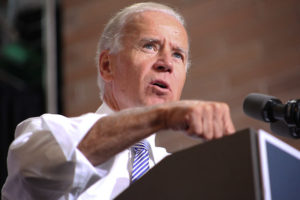Why Anita Hill’s Testimony Matters
If Anita Hill told the truth -- and I believe she did -- then Clarence Thomas lied repeatedly and under oath.I was in the room 19 years ago when Anita Hill and Clarence Thomas testified about things I never imagined I’d hear discussed in public, no less before a congressional committee. The atmosphere was charged, the details sordid. Some people in the room believed Hill’s graphic account. Others credited Thomas’ vehement denials.
But I doubt anyone present shared my colleague Kathleen Parker’s reaction: “She may have told the truth, but so what?” So many years later, with memories faded even if emotions still run high, it’s worth explaining why this matters.
First, if Hill told the truth — and I believe she did — Thomas’ behavior went far beyond raunchy remarks or mild flirtation that Hill ought to have shrugged off. Indeed, if you believe Hill’s account, Thomas himself recognized how far across the line he had gone: “He said that if I ever told anyone of his behavior that it would ruin his career.”
Second, if Hill told the truth — and Parker acknowledges that she may have — then Thomas outright lied. There is no way to square their testimony. You could imagine a world in which Hill related how offensive Thomas’ behavior felt to her and Thomas said he had no clue she was taking it that way. But Thomas’ blanket denials left no room for that middle-ground possibility.
Hill testified that three months after she began working for Thomas at the Department of Education’s civil rights office, he started to ask her out. “I was very uncomfortable with the idea and told him so,” Hill testified. “I thought that by saying no and explaining my reasons my employer would abandon his social suggestions. However, to my regret, in the following few weeks, he continued to ask me out on several occasions. He pressed me to justify my reasons for saying no to him.”
It didn’t end there. Thomas, Hill testified, repeatedly discussed the most extreme sorts of pornography — women having sex with animals, rape scenes — and bragged about his sexual prowess. “Because I was extremely uncomfortable talking about sex with him at all and particularly in such a graphic way, I told him that I did not want to talk about these subjects,” Hill said. “My efforts to change the subject were rarely successful.”
Hill explained that when Thomas was tapped to become EEOC chairman, she chose to follow him for several reasons: Thomas’ “offensive behavior” seemed to have stopped; she cared about civil rights work; and she didn’t have another job.
Then, the conduct resumed: “The comments were random and ranged from pressing me about why I didn’t go out with him to remarks about my personal appearance,” she said. “He began to show displeasure in his tone and voice and his demeanor and his continued pressure for an explanation. He commented on what I was wearing in terms of whether it made me more or less sexually attractive.”
Hill said Thomas’ discussions of pornography and the pressure to date him “made me feel sort of helpless in a job situation because I really wanted to do the work that I was doing.”
Eventually, Hill said, she left for a new job, “in large part because of my desire to escape the pressures I felt at the EEOC.” Should Hill have complained to a higher authority? “I may have used poor judgment early on in my relationship with this issue,” she told the Senate. “I was aware, however, that telling at any point in my career could adversely affect my future career.”
If this sounds like a “so what” situation to you, please explain what your reaction would be if you found your wife, your daughter — or yourself — in this predicament.
Then there is the uncomfortable topic of perjury. In his famous “high-tech lynching” statement, Thomas allowed for no possibility of an innocent misunderstanding. He testified “unequivocally, uncategorically, that I deny each and every single allegation against me today that suggested in any way that I had conversations of a sexual nature or about pornographic material with Anita Hill, that I ever attempted to date her, that I ever had any personal sexual interest in her, or that I in any way ever harassed her.”
To acknowledge that Hill may have told the truth is to accept that Thomas may have lied — repeatedly and under oath. If Hill testified truthfully, Thomas committed perjury. And this seems, even now, like a pretty big so what.
Ruth Marcus’ e-mail address is marcusr(at symbol)washpost.com.
© 2010, Washington Post Writers Group
Your support matters…Independent journalism is under threat and overshadowed by heavily funded mainstream media.
You can help level the playing field. Become a member.
Your tax-deductible contribution keeps us digging beneath the headlines to give you thought-provoking, investigative reporting and analysis that unearths what's really happening- without compromise.
Give today to support our courageous, independent journalists.






You need to be a supporter to comment.
There are currently no responses to this article.
Be the first to respond.